Abstract
The diversity in responses of local research ethics committees (LRECs) is illustrated with reference to consideration of the protocols for a national survey of physical activity, fitness and health in healthy volunteers. The survey included a questionnaire administered in the home, followed by a physical appraisal carried out in a mobile laboratory. The study was eventually approved by the 30 local committees to which it was submitted, but there was marked variation in the type of enquiries received and the special arrangements requested. At one extreme, some committees approved the study before seeing the detailed ethical submission; at the other extreme, suggested expensive and time-consuming alterations to the standard procedures. Our experience reveals a lack of uniformity in the operation of LRECs, serious enough to delay and even inhibit useful research, and a failure of some committees to adhere to guidelines suggested by the Royal College of Physicians and the Department of Health.
Full text
PDF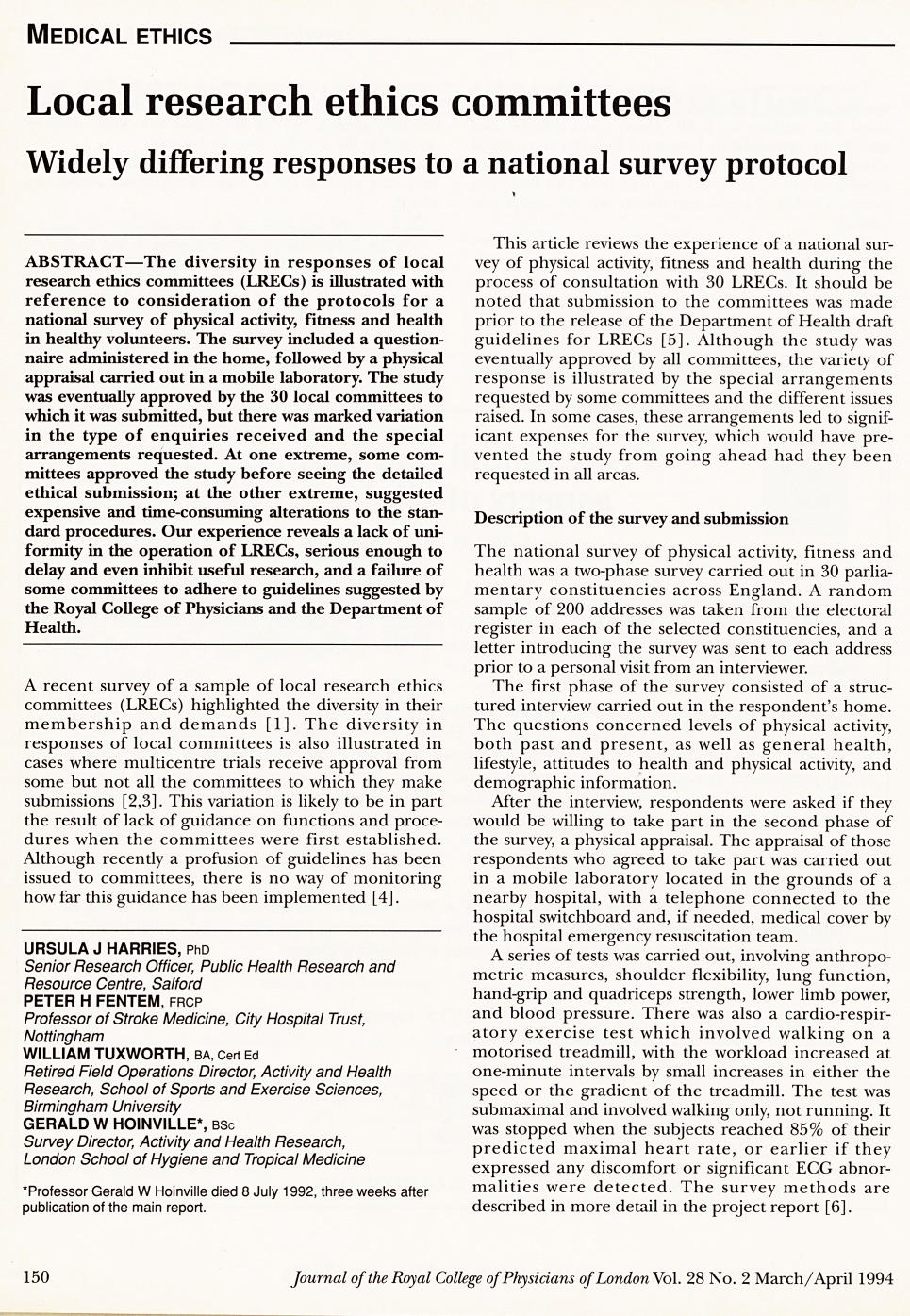
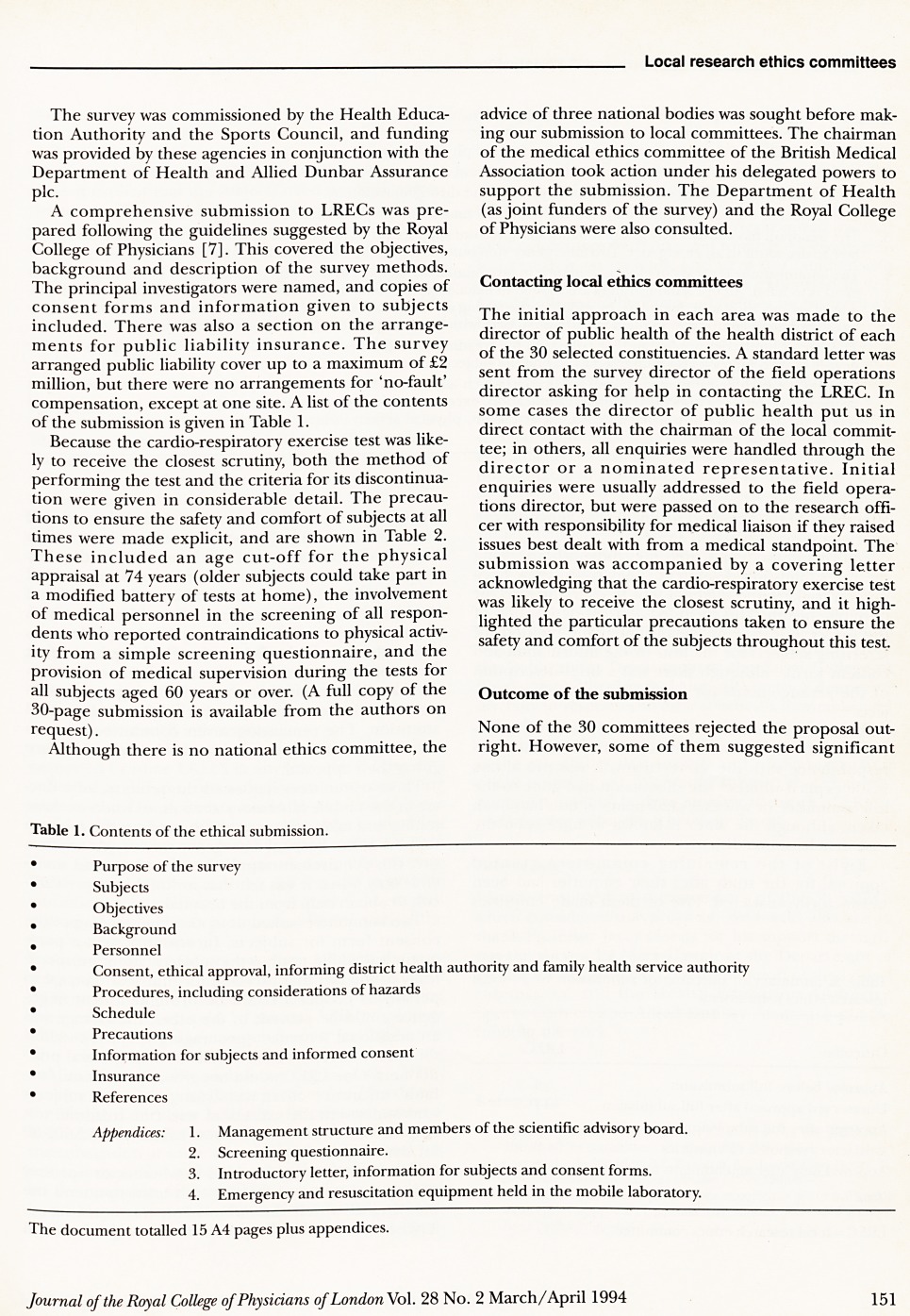
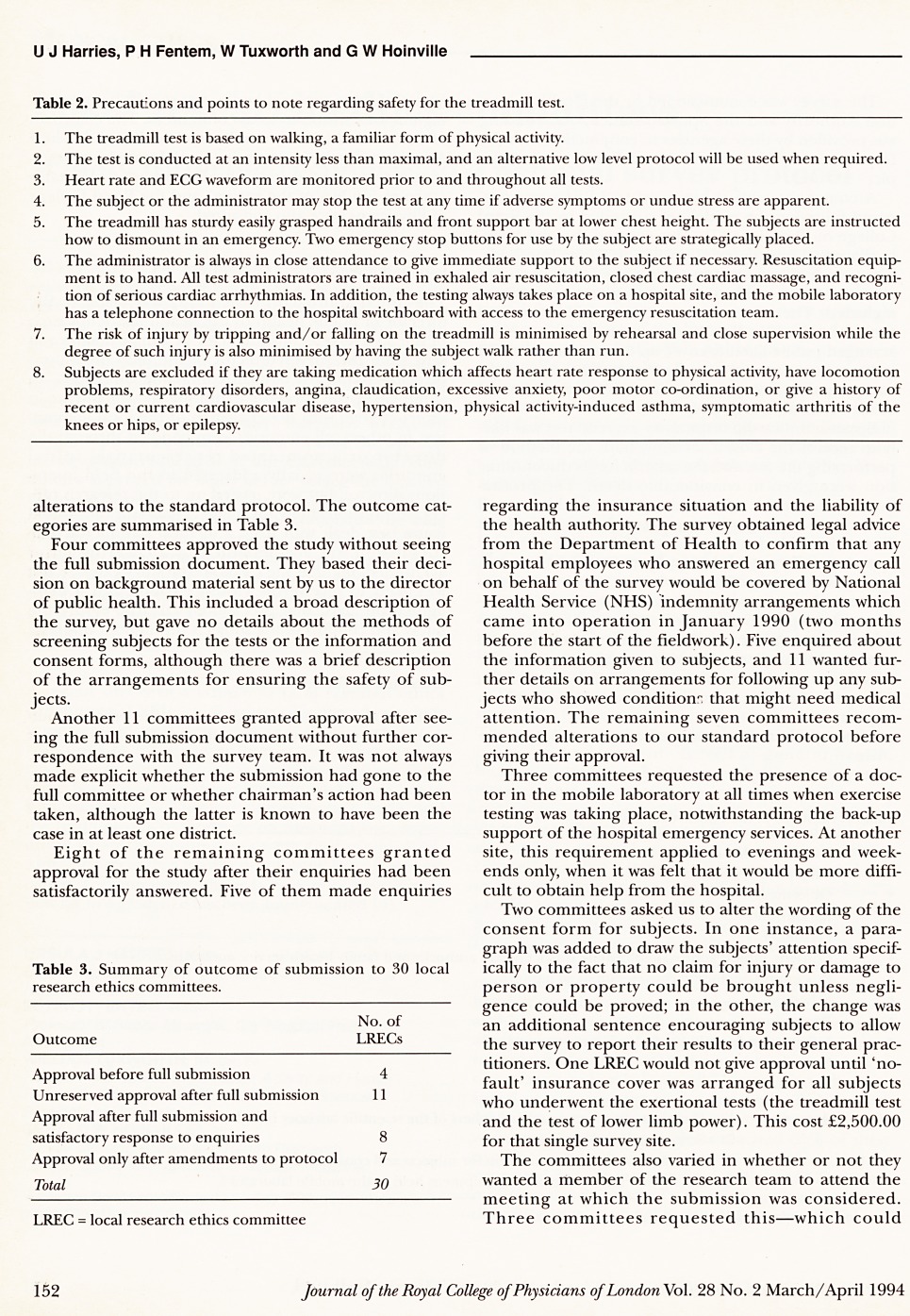
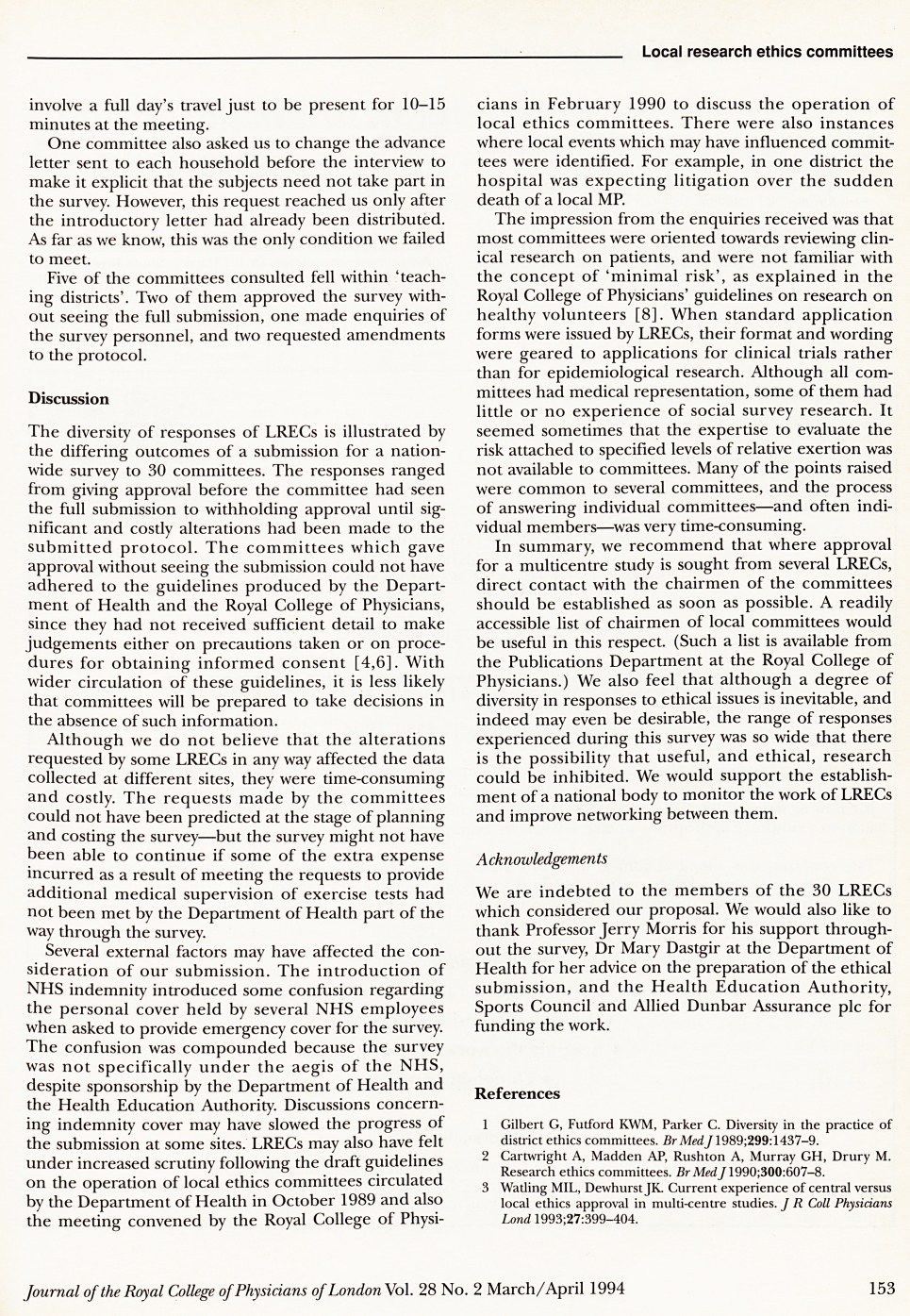
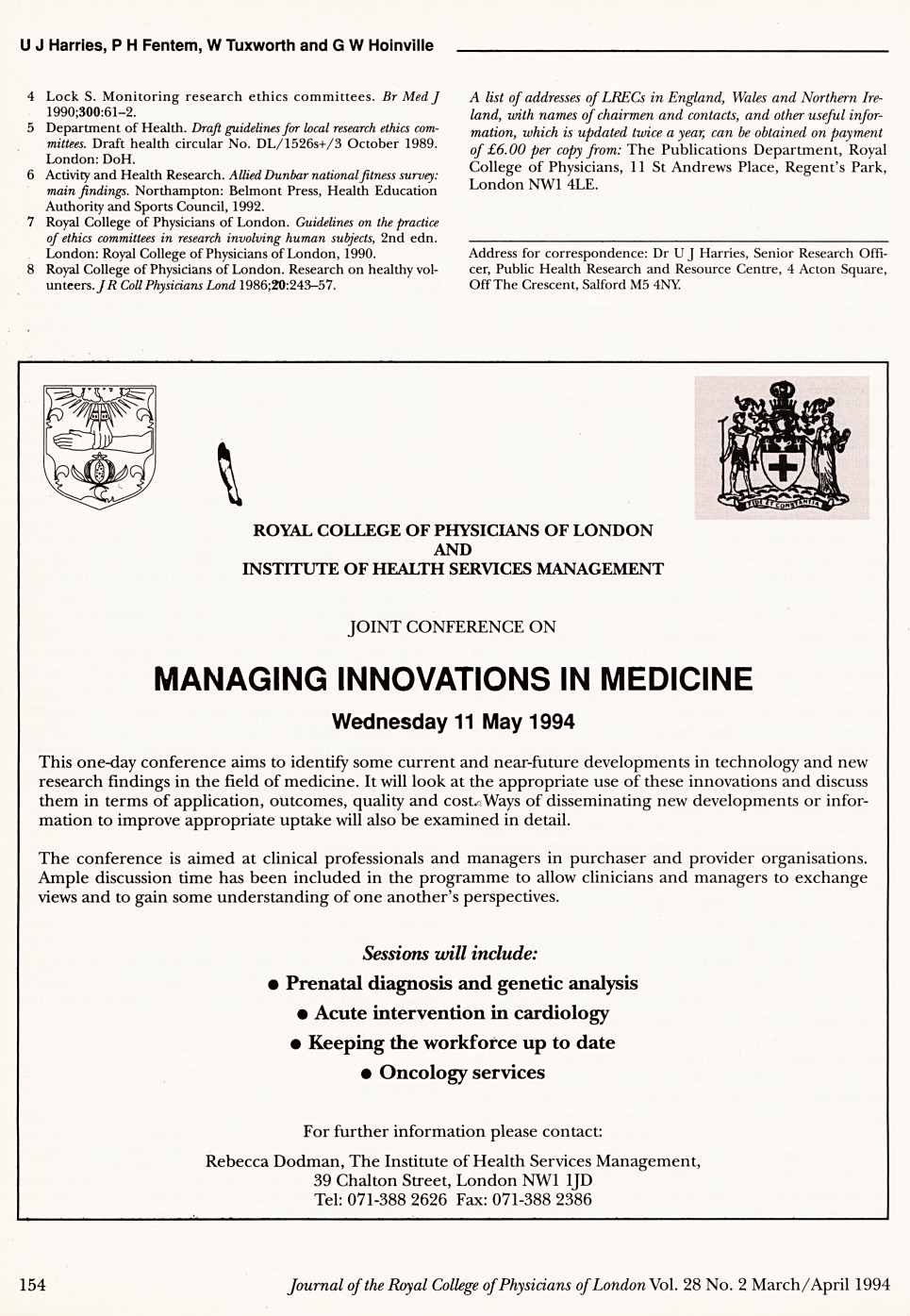
Contributor Information
Ursula J Harries, Senior Research Officer, Public Health Research and Resource Centre, Salford.
Peter H Fentem, Professor of Stroke Medicine, City Hospital Trust, Nottingham.
William Tuxworth, Retired Field Operations Director, Activity and Health Research, School of Sports and Exercise Sciences, Birmingham University.
Gerald W Hoinville, Survey Director, Activity and Health Research, London School of Hygiene and Tropical Medicine.



